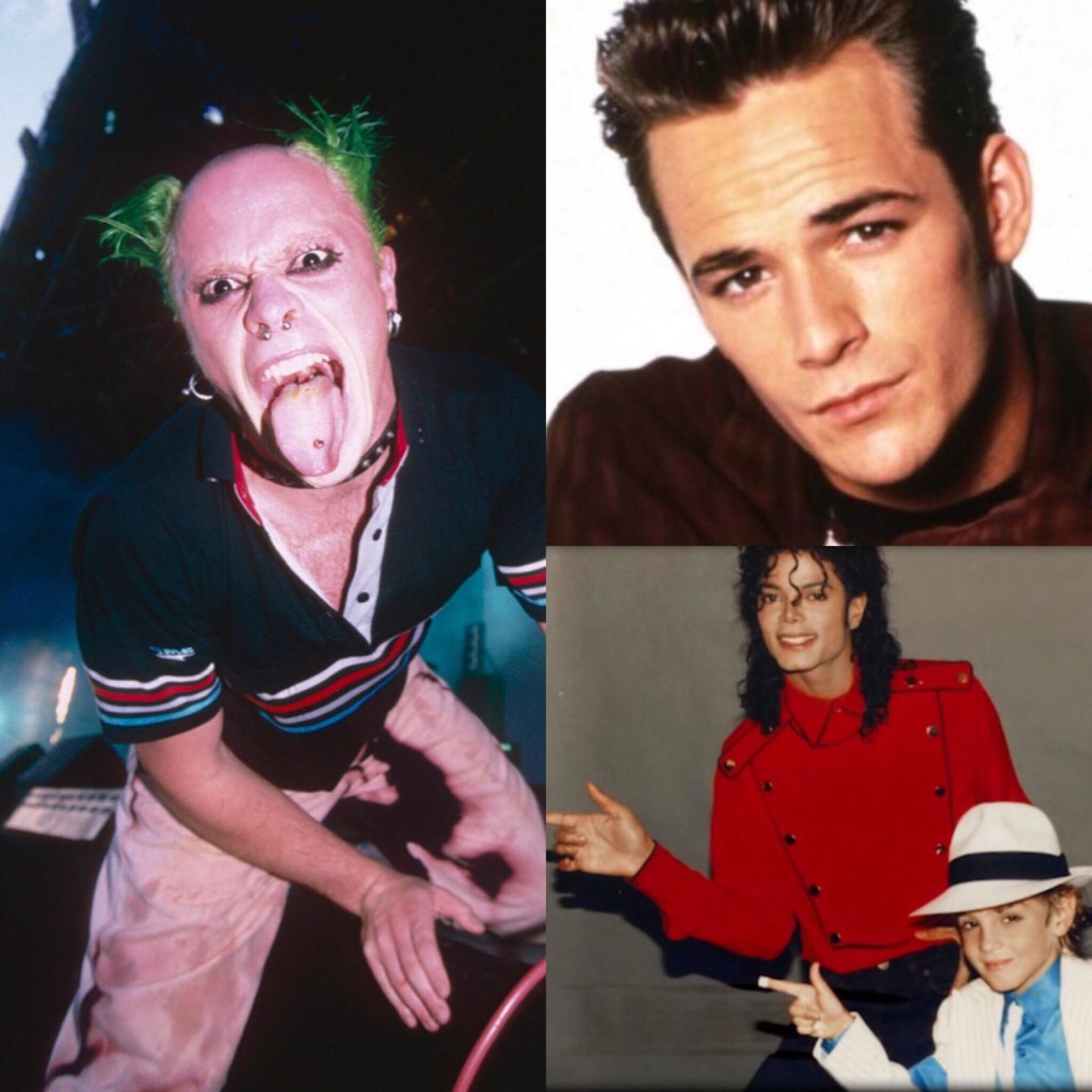Despite the steady and constant stream of 90s nostalgia that has kept Urban Outfitters afloat for the past decade, the actual death of all the decade symbolized–innovation, hope (albeit tinged with jadedness) for the future and an almost doggedly conscious lack of irony–has essentially occurred in the span of a two-day period in 2019. Starting with the release of a damning documentary about the long-standing “where there’s smoke, there’s fire” allegations against Michael Jackson, Leaving Neverland, to the HBO airwaves on Sunday, any false remaining self-deceptions about the illusory “carefreeness” of the 90s were summarily decimated.
To this end, the auspiciousness to the theme (and also of course by cruel fate standards) of the metaphorical end of the 90s deaths of The Prodigy frontman Keith Flint–in part responsible for bringing to life one of the most poignant in its regard to gender studies music videos of all-time–and the last of the iconic heterosexual bad boys Luke Perry on the same day seemed to highlight the notion that we’ve firmly entered a new era from which there is no return (though, to be fair, the ultimate representations of a bygone pop culture era, Paul McCartney/Ringo Starr and Mick Jagger/Keith Richards, have yet to bid adieu–clearly of that old school hearty British stock).
While the post-millennial generations–and even millennials themselves–can wax poetic all they want about the wondrousness of the 90s, the fact remains that the decade has slipped ever further from our fingertips and it’s almost more painful at this point to continue to attempt to cling to those years and their uniqueness when even two great talismans of the epoch couldn’t bother to keep doing so.
In Flint’s case, suicide (likely as a result of being unable to bear the thought of having to get it up for another tour spent peddling the same old shtick–tongue and all), and Perry’s, a massive stroke, it was as though the Fates wanted to balk at any remaining trace of humanity still capable of remembering the pre-internet era, hissing, “Every last vestige of what you loved about the 90s shall perish. We must let Führer T#@*% and his army of dolts reign–therefore whitewash over–all of what’s left of the collective consciousness’ happy memories of the 90s.”
As for hammering out any remaining credibility for Jackson–who reached a more iconic status in the 90s than the 80s as a result of his, for all intents and purposes, skin grafting/facial reconstruction–Leaving Neverland comes at a time when the #MeToo movement has found the need to bleed into other avenues of non-heteronormative abuse. That, like R. Kelly, the allegations against Jackson have been long-standing yet have only just now been taken seriously enough to make a documentary about (see also: Surviving R. Kelly) also speaks to a specific and well-timed need to debunk the myth that the 90s were anything but just as depraved as the present, if not even more so, considering that everything (or mainly, every mistake made) a celebrity does now is immediately known thanks to the constant anal probe of technology. And while it’s unjust, sure, it has aided in somewhat checking “bad behavior” that there was formally no fear of thanks to the cloak and dagger nature of living in a protective Hollywood cocoon.
So yes, in a way it’s somewhat tragic to have this trifecta of events coalescing to prove that the 90s were, like Britney Spears, not that innocent, but in another, maybe it’s better that we let go–both millennials and Gen Zers pretending to know anything about the decade because they bought a Clueless or Friends shirt–of our false idol (the 90s) by losing some of its key players both literally and figuratively.



















